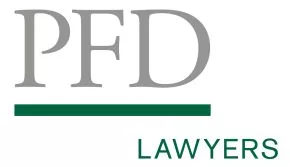On March 3, 2012, two experienced emergency medical technicians (EMTs) responded to a call at Cadillac métro station, where an individual was threatening to commit suicide. When they arrived, the person had acted on the threat.
Before they descended to the track to recover the victim's lifeless body under the subway car, the EMTs were told by police officers and an STM representative that the primary electric current had been cut off. It was only after this information was confirmed that the EMTs went down to the track to recover the body from under the car.
While the EMTs were in a location described by the court as a cramped and dimly lit space in which the heat was overwhelming, they heard the blow of a horn, followed by a second blow a few seconds later. An STM technician had accidentally sounded the horn while repairing the windshield at the head of the train. He did not inform the EMTs.
When the horn rang out, both EMTs naturally felt that their lives were in danger, since they thought the sound was a warning that the train was about to start up again. Their panic grew when they saw police officers running on the tracks. Still, the EMTs were able to manoeuvre out of their position. They were then brought to the hospital to be treated for shock and later placed on leave.
The CNESST received and approved their post-traumatic stress disorder claim. Neither EMT was able to return to work.
The EMTs also filed a liability suit against the STM for the damages they suffered following the incident (Poisson vs. Société de transport de Montréal, 2017 QCCS 5423).
The Superior Court concluded that the STM had committed a fault that caused the damages, not because the technician blew the horn but because the incident supervisor had failed to act as a normally prudent and diligent incident supervisor would under the circumstances.
The STM's incident supervisor (chef d'incident) is responsible for the application of the steps and measures of the incident procedure in the case of a possible violent death.
Indeed, the Court was of the opinion that, when the horn blew, the supervisor should have advised the EMTs as quickly as possible that they were not in any danger and that the noise had been set off by accident.
The Court determined that the EMTs had been afraid for their lives and that the damages stemmed from post-traumatic stress disorder. Based on the balance of probabilities, the Court was convinced that if the EMTs had been reassured immediately, they would have suffered lesser damages, if any at all.
The STM was therefore ordered to pay over $1.2M in damages to the EMTs for their loss of ability to gain past and future income, future additional expenses and health care costs, non-pecuniary losses and expert fees.
About Mackrell International - Canada - Prévost Fortin D'Aoust is a Quebec based business law firm with offices in Montreal, Saint-Jérôme, Boisbriand, Sainte-Agathe-des-Monts and Laval, and a member of Mackrell International. Mackrell International - Canada is comprised of four independent law firms in Alberta, British Columbia, Ontario and Quebec. Each firm is regionally based and well-connected in our communities, an advantage shared with our clients. With close relations amongst our Canadian member firms, we are committed to working with clients who have legal needs in multiple jurisdictions within Canada.
This article is intended to be an overview and is for informational purposes only.

